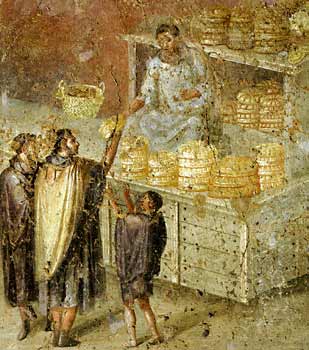Zainab Khan has a guest post on the Patheos blog AltMuslim, about a bullying volunteer at a mosque school. If you read the post, I think you will recognize the situation, whether from a mosque, church, or secular setting.
Often we allow our institutions to be held hostage by volunteers and donors – we become dependent on the donations or efforts of such individuals, and thus refrain from offering criticism when it is needed, because we fear that we’ll lose their support.
 It is an issue that Christians have struggled with at least since the time of Constantine. He’s an emperor, and he’s being nice (in general) to the churches after years of Christians navigating a much less hospitable situation. Who’s going to challenge him? And on a smaller scale, who is going to rebuke someone who is always fixing things around the church and has done so for years?
It is an issue that Christians have struggled with at least since the time of Constantine. He’s an emperor, and he’s being nice (in general) to the churches after years of Christians navigating a much less hospitable situation. Who’s going to challenge him? And on a smaller scale, who is going to rebuke someone who is always fixing things around the church and has done so for years?
What are your thoughts on how best to navigate such a situation? It is well and good to say that bullying needs to be stopped and never tolerated. But presumably many religious institutions want to be places not just where nice, polite people can feel safe, but where those with bullying instincts can learn to overcome them. And so what balance needs to be found, if any?
A related topic came up in my Sunday school class this past weekend. We’ve been studying the Lord’s Prayer, and are up to the petition for “daily bread” (or however it ought to be translated). One subject that came up was the practice of emperors distributing food for free as a way of capturing the allegiance and loyalty of the populace. And against that background, a request for divinely-provided food might have the implication of seeking to disentangle oneself from owing favors to those who might then ask us to support them in ways that we are uncomfortable with or downright opposed to.












